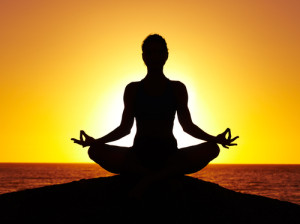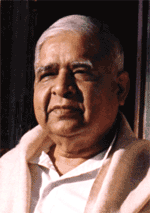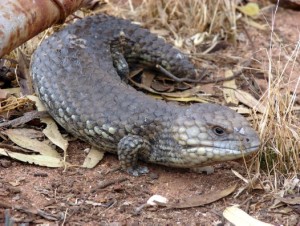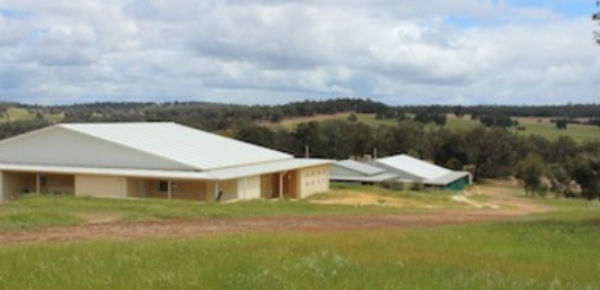So, late last year, I decided to enrol in a January Vipassana course. For those who don’t know what that is, it’s a form of meditation designed to allow you to live a more productive, happy and peaceful life. How does it achieve this? Well, that’s a complicated question, and the answer is different for everyone. The teacher, Goenka, simplifies it with stories and parables designed to show the student that misery (an all-encompassing term for unhappiness, uncertainty, etc) comes down to knowing oneself and adjusting your attitude. But again, I’m not doing it justice.
On my arrival, I instantly went into a thought process where I told myself I was wasting my time. 11 days in the bush? Doing nothing? I could have gone to Bali or something. But, letting that go, I registered and found my bed in the dorm. The accommodations are neat, tidy and rustic – a rammed earth building with a kitchen (off limits to us), office and dormitory. The ladies side had two dorms of about 15 beds. The men’s area seemed smaller, but I only got a glance at it on the last day. Guests are welcome to camp in their own tents instead, if you prefer the privacy; but it wasn’t necessary – it’s private enough because…
You aren’t allowed to speak to another student, or make eye contact for the duration of your course. There is talking permitted on the final day, but the first 9 whole days are to be filled with noble silence, and you are to pretend that you are alone. This was by far the easiest part of it for me, as I sometimes get sick of hearing people talk – working in marketing and entertainment does that to you. Things that were out of my comfort zone included no reading or writing. I was to find out that it wasn’t too bad, as 90% of your day is spoken for and there would be little time to enjoy that kind of pursuit anyway. The reason behind this is to purify your mind. All outside influences are blocked and you only have your own mind and body to rely on.

This is not what it looked like
Your day starts at 4am with a loud, unsympathetic wake up gong. It will keep ringing until the lights are on and at least a few of you make it to the meditation hall. The morning meditation isn’t compulsory in the hall, but if you want to stay in bed, you must sit up and meditate for the two hours. I did go to the hall the first two mornings, but Goenka’s chanting for the second hour is rather distracting, so on consequent days, I went back to the dorm for the second half.
Meals were interesting. Vegetarian, and only breakfast and lunch. An empty stomach is said to keep you sharp, especially when your main activity is ‘sitting down’ for ten days. No, I didn’t lose weight. I did struggle with the breakfasts as they were cereal and fruit, two of my food enemies. Lunch was fantastic, a range of salads and a hot dish such as nachos, lasagne or a vege bake. Suprisingly I didn’t miss meat or alcohol, although my skin all over went super dry. A combination of the lack of fats, the warm weather and my allergies (they had recently re-painted and installed synthetic carpets, hello chemical allergy!).
Sitting for 10 hours a day in deep meditation was difficult. You become hyper aware of every muscle in your body and the first three days are uncomfortable. This is, unfortunately kind of the point. The Anapana meditation is to make you very aware of the sensations that your body experiences as is. The feel of the air against it, your clothes, itches, tingles and pain. These first few days, you are to concentrate on your nose and lip area and ignore all else. I found it tiresome, but stuck to it. I’ll admit that more than a few times, I felt I was wasting my time, but I was there and I owed it to the technique to give it a go.
The second portion is Vipassana. This is where the technique changes slightly in that your focus is now on your whole body. You are taught (through discourses at the end of the day, as well as audio instructions each session) to observe your pains and sensations as objectively as possible (a bad way of explaining it as humans are incapable of objectivity but there you are) and to not give in to cravings such as re-positioning yourself, scratching etc. Notice the itch and move on. Notice the pain and move on. Eventually, to my complete surprise, I stopped feeling all the pain many times and it was replaced by a slight buzzing feeling, like static. It’s different for everyone though, and for me it usually didn’t last the whole day. You have ups and downs.
Goenka describes human misery as one filled with cravings. He doesn’t mean substance cravings, although that is included, but every day rituals and expectations that each of us place so highly.
 “A sensation appears, and liking or disliking begins. This fleeting moment, if we are unaware of it, is repeated and intensified into craving and aversion, becoming a strong emotion that eventually overpowers the conscious mind. We become caught up in the emotion, and all our better judgment is swept aside. The result is that we find ourselves engaged in unwholesome speech and action, harming ourselves and others. We create misery for ourselves, suffering now and in the future, because of one moment of blind reaction.” S.N Goenka
“A sensation appears, and liking or disliking begins. This fleeting moment, if we are unaware of it, is repeated and intensified into craving and aversion, becoming a strong emotion that eventually overpowers the conscious mind. We become caught up in the emotion, and all our better judgment is swept aside. The result is that we find ourselves engaged in unwholesome speech and action, harming ourselves and others. We create misery for ourselves, suffering now and in the future, because of one moment of blind reaction.” S.N Goenka
The process of Vipassana therefore, is to reduce your cravings, the magic pay off feeling you get on a blind reaction, and move on from it.
I had a similar learning experience when reading about limiting beliefs and how to eliminate them, with the Lefkoe Method. They are similar outcomes, but different methods, so I was actually already well versed on eliminating the meaning that humans place on events and feelings.
Although this intense way to learn this technique is rather trialling, I can only describe it as both easy and hard. It was easy in the aspect that essentially you aren’t doing anything for tenish days .The hardcore workaholics will find that difficult, and those that are less open minded to meditation might find sitting still excruciating, but I say if you commit to it, you will get something out of it. 11 days (10 days of the course, but you go home on the 11th day) is a long time, but so is the rest of your life.
The difficult parts are the sameness of the days and the fact you lose relative time. I was unsure of what day it was, and that didn’t matter, but my brain demanded I know. You start counting pebbles and fingers trying to figure out how long you’ve been in for. Like being in prison. They don’t hide the fact that you may feel imprisoned, and it is laughingly pointed out to you during orientation.
All in all, for me it was a positive journey. I came out feeling like I was on the right path, calmer and a bit more thoughtful. It’s not there to fix your life, but to accept life and ensure your choices are more thoughtful. If you take nothing else away from it, it shows that acceptance, working hard and kindness are quite important in life.
Top Tips:
- Bring as many toiletries as you need, no need to go full rustic. I wish I’d brought a pedicure kit. Don’t bother with make-up though, no one cares.
- Bring walking shoes. While day to day, thongs or slip on shoes are best as you can’t wear shoes indoors (you constantly are taking them on and off) in order to stay fit, I walked a lot each day. It’s a large property, but it’s mainly grass (full of snakes and bobtails) and red dirt. I was glad I bought sneakers for my down time.
- You will have insane dreams. The lack of stimulation means your brain will invent dreams that are very difficult to discern from reality. Amazing and scary. If you sleepwalk, make sure you sleep close to the door, or on your own in a tent.
- Bring multi-vitamins or iron tablets. If you aren’t used to a vego diet, you will get light headed and don’t fall for the spinach iron fallacy -it contains oxalates that inhibit it’s absorption.
- Bring tissues. You will either get slightly emotional at times, or you will sneeze as the bush is dusty and polleny.
- Be aware that Australian bush life is right in your face. There is a family of kangaroos that visit to beg for fruit. Heart breakingly you aren’t allowed to feed them, however the baby was so bold as to lick the face of one of the girls, who was trying to ignore him. His 7 foot tall dad was nearby checking out the goods. Bobtails and scorpions are everywhere, so when leaving make sure you check under your car.

- Bring a hand fan. Not an electrical one, just one of those folded ones. If it’s winter, bring thick pyjamas as even in the midst of summer, night was rather cool.
- Try not to sleep after meals. You’ll have a bit of spare time, use this to wash your clothes, go for a walk or save bobtails from being stepped on. It’ll make bed time at 9.30pm easier.
- Lastly, just enjoy the time with yourself. You’ll learn a lot and if you follow the instructions as best you can, you will get something positive out of it.
